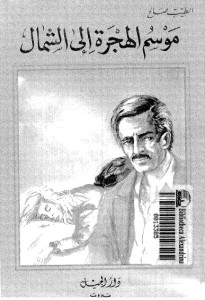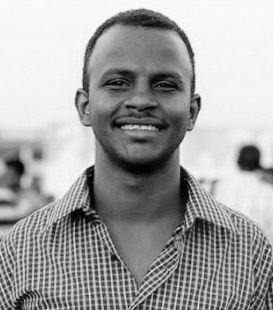When the word novel is mentioned in Sudan, the first name that comes to mind is Tayeb Salih, also known as the genius of the Arabic novel. His novel “Season of Migration to the North” was nominated for the Nobel Prize in Literature.
There is no doubt that there is a significant gap between Tayeb Salih and other Sudanese novelists in terms of language, narrative, description and symbolism. The generations that followed struggled in order to prove themselves and showcase their style in contract to Tayeb Salih. Adding to their struggles is the lack of publishing opportunities inside Sudan. While cultural diversity in Sudan has the potential to produce remarkable cultural products, such as the work of internationally acclaimed artist Ibrahim Elsalahi; the poetry of Rawdah El-Haj and Mohammed Faitouri who was a proud African, and finally the genius of the Arabic novelist Tayeb Salih, Sudanese writers have become isolated from the rest of the world due to lack of publishing opportunities in Sudan.
The general troubled political climate in Sudan and non-belief in the importance of cultural production led to the loss of many novels, short stories and other cultural experiments. Most novelists who were able to get published were outside of Sudan, and those who remained in Sudan found it difficult to communicate with publishing houses in Lebanon- the leading destination for publishing in the Arab world. Among novelists who were able to succeed outside of Sudan is Leila Aboulela who has Sudanese and British citizenship; Leila received numerous awards and nominations for her short stories and novels. There is also Issa Elhilu, whose first literary production “Parrot Feathers”, a collection of short stories in the early seventies was published by a Lebanese publishing house. However, there are many novelists who did not find similar opportunities- such as Ibrahim Isaac, who only published one novel in the seventies and settled for publishing his stories through local magazines until he was finally able to publish another novel in the beginning of the new millennium.
Young Sudanese novelists have gone through a drastic leap, instigated by the higher education changes of the Inqaz regime. Universities became a hub that featured different parts of Sudan. Cultural associations were formed to promote poetry, theater, song and prose. Even though writing may not have received the same attention as other activities, however it still advanced through the creation of small book clubs, where international and local novels were read and discussed. These clubs played a role in the emergence of writers who were encouraged and guided by their colleagues. Such opportunities distinguish this generation from previous generations where encouragement and development of talent through small competitions within universities prompted many young writers to continue developing their skills.

In 2005 the government decided to publish the work of a group of writers and poets under the auspices of the program “Khartoum, the capital of Arab culture”. Coincidentally, publishing houses were on the rise that same year, which helped break the ice between the reader and the young writer. Inqaz government is to be commended for progress in this aspect, as well as Khartoum Publishing Council, which published “New paths, Third horizon” which contains short stories for over ten young writers.
The real launch for the young writers’ movement was in Abdulkarim Mirghani Cultural Center, which started the Tayeb Salih Award for Creative Writing to commemorate the late renowned writer in 2002. The award categories are short story, novel and poetry. Abdulkarim Mirghani Mohamed, founder of the center, was one of the founders of the Sudanese embassy in the United Kingdom after independence. He returned to Sudan after the overthrow of the Aboud government and worked with successive governments. He was imprisoned for a long time after the communist coup d’etat and started his cultural center after retiring from political work. The cultural center acted as a hub for intellectuals and politicians. The Tayeb Salih Award helped shed light on many young novelists such as Abdulaziz Baraka Sakin among others. Other than publishing the work of winners, the center has translated over 140 different works into Arabic. The center also holds a children’s library as part of “Nefaj”- a section that was started by the late poet Mahjoub Sharif to focus on developing children’s writing skills.
The young writers cultural movement encompasses a number of opportunities to discover and foster young talent such as the Ghada Award for Young Writers aged between 14-18 years old. The award started in 2010 in memory of 15 year old Ghada Mojtaba Mahasi who passed away the same year the award was launched.
To be continued
In upcoming articles I will talk about the impact of technology on the emergence of a number of young writers at the regional level and offer a vision for the future of Sudanese young novelists.
